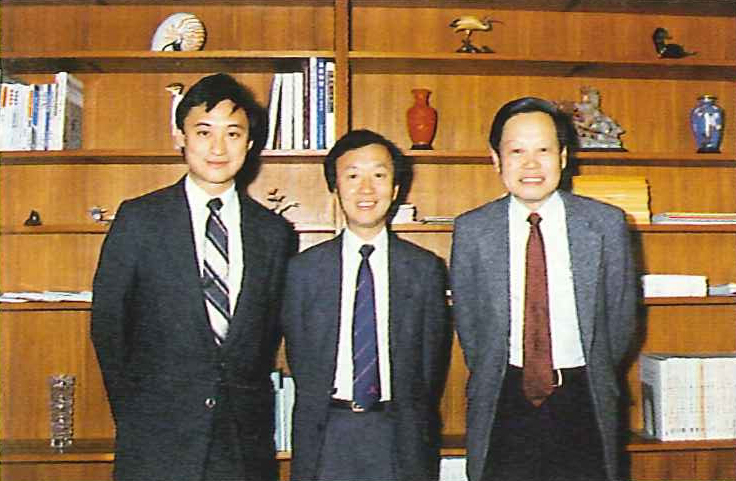In the 1960s, 33-year-old Charles Kao was researching fibre optics when he discovered how they could be used for high-speed data transmission. That research of his would go on to pave the way for the information age and revolutionise telecommunications for future generations. Here is a summary of how he lived his life and changed others’…
Disclaimer: LUCK-IT will earn a tiny commission when you purchase any of the Amazon products on this page.
1933 – Charles Kao Kuen is born in Shanghai, China to a lawyer who had become a university professor.
Childhood – He studies Chinese classics until he enters an international school where he then masters English and French. Plays with chemicals as a child.
Age 14 – Charles’ family moves to Hong Kong to get away from political instability.
Age 19 – He graduates from St. Joseph’s College—a prestigious school.
University – He studies electrical engineering at the University of Greenwich and obtains his Bachelor of Science degree from the University of London. He meets his future wife, Gwen Wong May-wan, who is a Fortran programmer.
Also available at Amazon.sg
After graduation – He gets a job at Standard Telecommunications Laboratories in Harlow, England and begins his groundbreaking scientific research: investigating how fibres of very pure glass can transport light over distances longer than traditional fibres, laying the groundwork for high-speed data communication.
Age 32 – He receives his Ph.D. from University College, London.
Age 33 – He writes a paper on how glass fibre can be used for high-speed transmission of information.
Age 37 – He gets a job that the Chinese University of Hong Kong and founds the Department of Electronics.
Age 41 – He emigrates to the U.S.A. and begins working for I.T.T. Corporation in Roanoke, Virginia.
Age 43-81 – He wins numerous awards all around the world and donates most of his prize medals to the Chinese University of Hong Kong.
Age 46-69 – He receives numerous professorships and fellowships from various universities and societies around the world.
Age 49 – He is the first Executive Scientist at I.T.T. and is also now serving as adjunct professor and Fellow of Trumbull College at Yale University.
Age 52-78 – He receives honorary degrees from universities all over the world.
Age 54-63 – He becomes Vice Chancellor of the Chinese University of Hong Kong.

Age 63 – He retires and becomes visiting professor at the Chinese University of Hong Kong. A wing at the Chinese University is named after him.
Age 67 – He founds the Independent Schools Foundation Academy in Hong Kong and serves as its chairman till 2008. During this time, he also serves as Chairman of Transtech Service Ltd and I.T.X. Services Ltd.
Age 71 – Charles’ is diagnosed with Alzheimer’s Disease and eventually no longer recognises his family. He goes to live in Mountain View, California, U.S.A., close to his children and grandchildren.
Age 76 – He wins the Nobel Prize in Physics and his wife says in an interview that the money will be used to pay for his medical expenses. An auditorium at the Hong Kong Science Park is named after him.

Age 77 – A stamp honouring Charles K. Kao is issued in Hong Kong. He is given the honour of becoming a Knight Commander of the Most Excellent Order of the British Empire and receives the Grand Bauhinia Medal in Hong Kong.
Age 78 – A Blue Plaque is dedicated to him in Harlow, Essex, England.
Age 84 – He passes away in hospice care in Hong Kong. He is survived by his wife, children and 3 grandchildren.

More life summaries available here.
Photographs: Public Domain. Compiler: Sy
Sponsor or support the Life Summary series here.
If you found this article useful:


Say something: